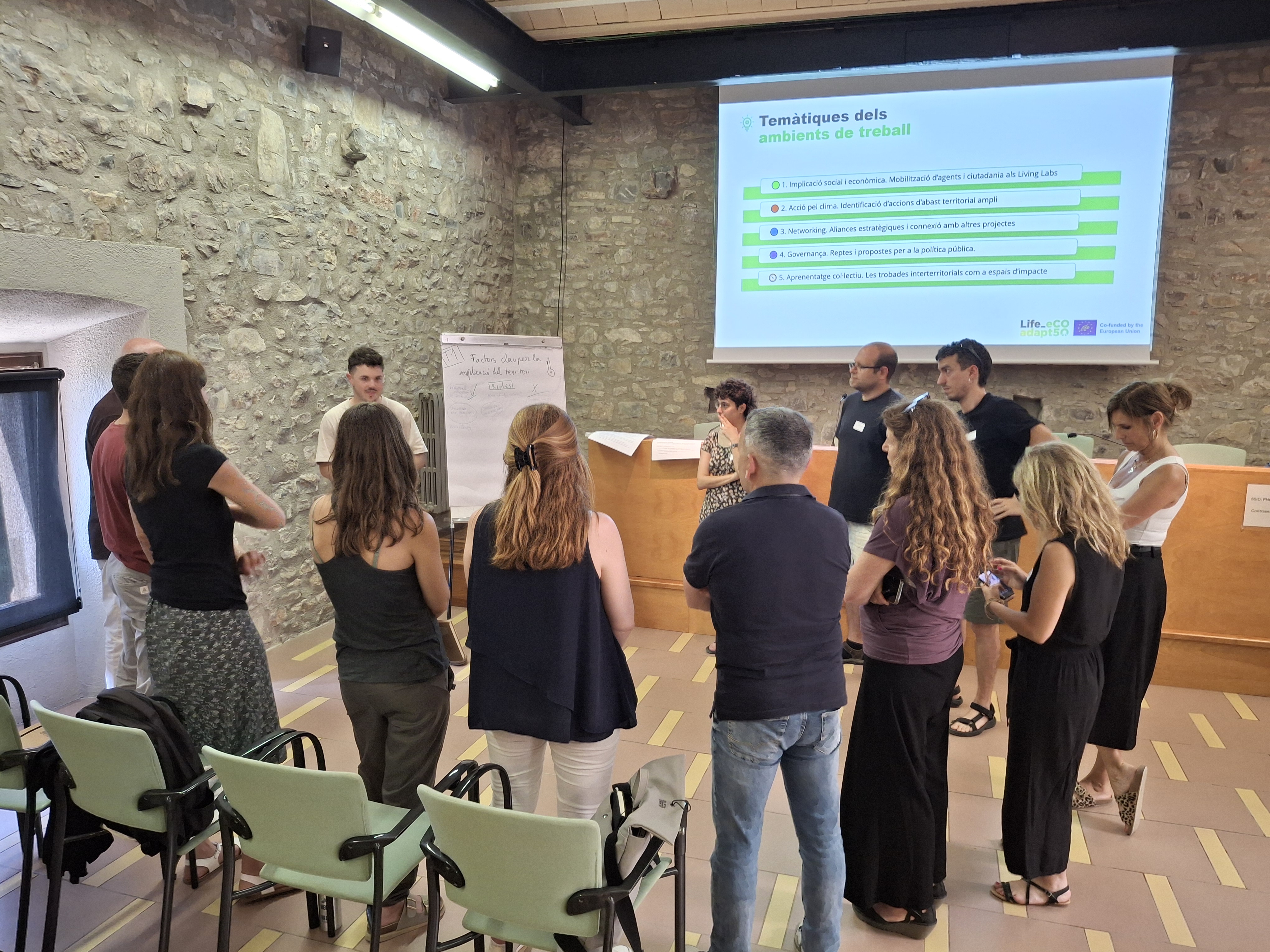Technicians and stakeholders of the Life eCOadapt50 Project advance in shared responses to climate change - Life eCOadapt50

One of the groups during the participatory session, at the Resource Centre of Castell de Montesquiu. Author: Diputació de Barcelona
The presentation was led by Marc Serra, Deputy and Delegate President of the Climate Action and Energy Transition Department of the Barcelona Provincial Council; Leo Bejarano, Head of the Catalan Office for Climate Change under the Department of Territory, Housing and Ecological Transition of the Government of Catalonia; Núria Parpal, project coordinator; Enric Aguilar, director of IU-RESCUE; and Joan Carles Àngel, director of the Parc del Castell de Montesquiu. All of them agreed on the need to find shared responses to face the challenges of climate change in the agri-livestock, forestry, fishing, and tourism sectors.
Jordi Jaria, professor of environmental law at URV, delivered an inspiring lecture on how to foster social resilience in the face of climate challenges, calling it “the greatest problem we’ve ever faced as a species.” Jaria advocated for new, more democratic forms of governance that would allow communities to become more resilient in responding to climate change, creating new social consensus — because, as he stated, “modern parliamentary democracies are the product of fossil fuels.”
Next, participants — divided into five groups — took part in a “coffee-conversation”-style participatory session, facilitated by Antoni Domènech, Jon Olano, Caterina Cimolai, and Guillermo Closa from the IU-RESCAT team, along with Ferran Bertomeu from EURECAT. The groups discussed how to engage and mobilize stakeholders and the public in living labs, identified large-scale regional actions, explored strategic alliances and connections with other projects, proposed public policy challenges and recommendations, and highlighted the collective learning enabled by these interterritorial meetings as spaces for real impact.
The session continued with a presentation by Marina Clarà, a technician from the Catalan Office for Climate Change, on how the Life eCOadapt50 climate vulnerability diagnosis was carried out and what it includes. Clarà announced that an update of this work will be carried out at the end of the project. Guillem Bagaria (ARCA) and Maria Casanovas (Consorci Leader del Camp) also shared practical examples of how these diagnoses have been turned into action plans.
The day concluded with a technical visit to two experimental farms in the municipality of Orís, where photographer and farmer Eugeni Ordeig presented a project to recover ancestral, pre-phylloxera grapevine varieties that he himself had found growing wild. Around twenty old varieties have now been planted, and the team is monitoring their development. The project, supported by INCAVI, Life eCOadapt50, and the Catalan Climate Fund, could be key in adapting the wine sector by identifying varieties resistant to extreme climate conditions.
You can access the presentations from the session in this document.
